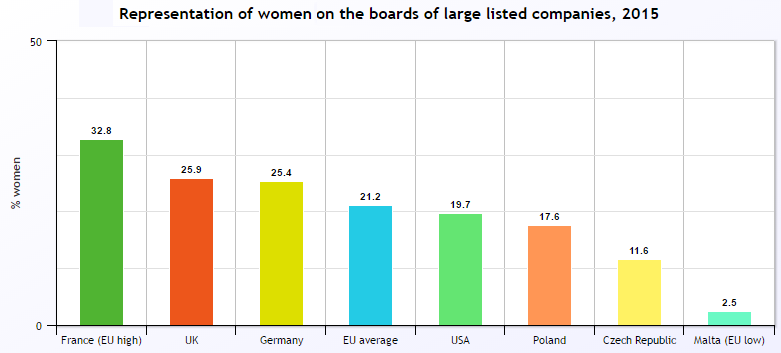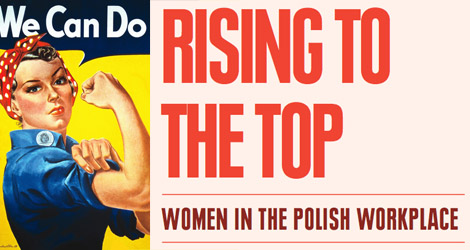Women’s Progress in the Brave New Polish Workplace
“If you want something said, ask a man. If you want something done, ask a woman,” said Margaret Thatcher, the first woman to become prime minister of Britain and one of the most powerful women in the world. Although the movement to support women in the achievement of leadership positions started long ago, it is one characterised by slow and steady rather than startling advances.
 Jolanta Gantkowska, Head of Alexander Mann’s Global Client Service Centre Poland
Jolanta Gantkowska, Head of Alexander Mann’s Global Client Service Centre Poland
The good news is that an increasing number of women are achieving leadership positions in Europe. In 2015, woman occupied an average of 21.2% of board positions in the largest publicly traded companies across the European Union, which is a 7.2 percentage point increase from 2013. This is still a small figure, considering that women account for close to 45 percent of the European workforce. The European Union acknowledges that empowering women to take leadership roles not only positively impacts companies’ performance, but also economic growth rates. With this in mind, the EU started its Europe 2020 Strategy, aiming to lead the world in knowledge, competences and innovation through decreasing the gender imbalance on corporate boards across all EU members states.
Poland ranks near average, having 17.6 percent of women in leadership positions. The country is trying to change this with programs promoting gender diversity on company boards and raising awareness campaigns promoting females in business.
One company in Krakow, Alexander Mann, a provider of talent acquisition and management services, recently appointed a woman as head of its Global Client Service Centre Poland, Jolanta Gantkowska. She is in charge of implementing company strategy throughout Poland, as well as representing the company on the international market. She has a background in economics, European studies, international studies and coaching and is a firm believer that a solid education combined with work experience and a desire to constantly challenge yourself are crucial to reaching the top.
“I think that if you are passionate about what you do and you strive for the best, you can achieve what you are aspiring to,” said Jolanta in an interview with the Krakow Post. She also credits her team and managers for some of her success: “I have been lucky to have many mentors around me – my colleagues, bosses, peers – so I could make my own observations, talk to them and consult any solutions I wanted to put in place,” she adds.
It has been found that two types of initiatives can improve women’s presence in business leadership: legislative measures and voluntary initiatives such as corporate governance codes, training charters, mentoring and networking programs. Jolanta is involved in a supportive community for women in Krakow called the Women’s Business Network (WBN). This initiative was created in 2010 by a group of people working for UBS, Tesco, Shell, and Sheraton with the aim of creating a supportive community for business women in Krakow that would provide knowledge sharing, networking and the promotion of female leadership role models.
“I believe this type of initiative definitely supports businesswomen through knowledge sharing and providing insights into various aspects of combining business and personal life with a good career. I think they help to clarify best practices and also create a dialogue around the topic, but with a balanced view of the challenges in the business environment. For me, WBN’s biggest success has been achieving a very strong position in the Krakow market through the very interesting topics discussed at its events. I really encourage everyone, not only women, to join those events,” said Jolanta.
Jolanta is a firm believer that success should really be based on skills rather than on gender, and has one piece of advice for all of young women (and men) starting out on their careers: “Have a vision and work to achieve it; don’t be afraid to change your goals but always understand why you want to achieve them. You cannot work against yourself and your own values – this is a short term strategy.”
Gender imbalance on company boards continues to decrease thanks to actions taken by the European Commission, companies such as Alexander Mann and people like Jolanta Gantkowska. As gender diversity has been directly linked to increased company performance and innovation, we can only hope that this trend continues to improve and that one day corporate boards will be filled with an equal number of men and women and that skills, experience and educational background will always matter more than gender.



Numbers talk and if there is a way to glean more numbers relative to the entrepreneural and leadership roles of Polish women, then the conversation would grow and inform better. The human side of enterprise is organic. Polish female professionals model and demonstrate “quiet power” as they are seeded in many diverse positions and will set female gender professional traditions for future generations. Bravo ladies, bravo.